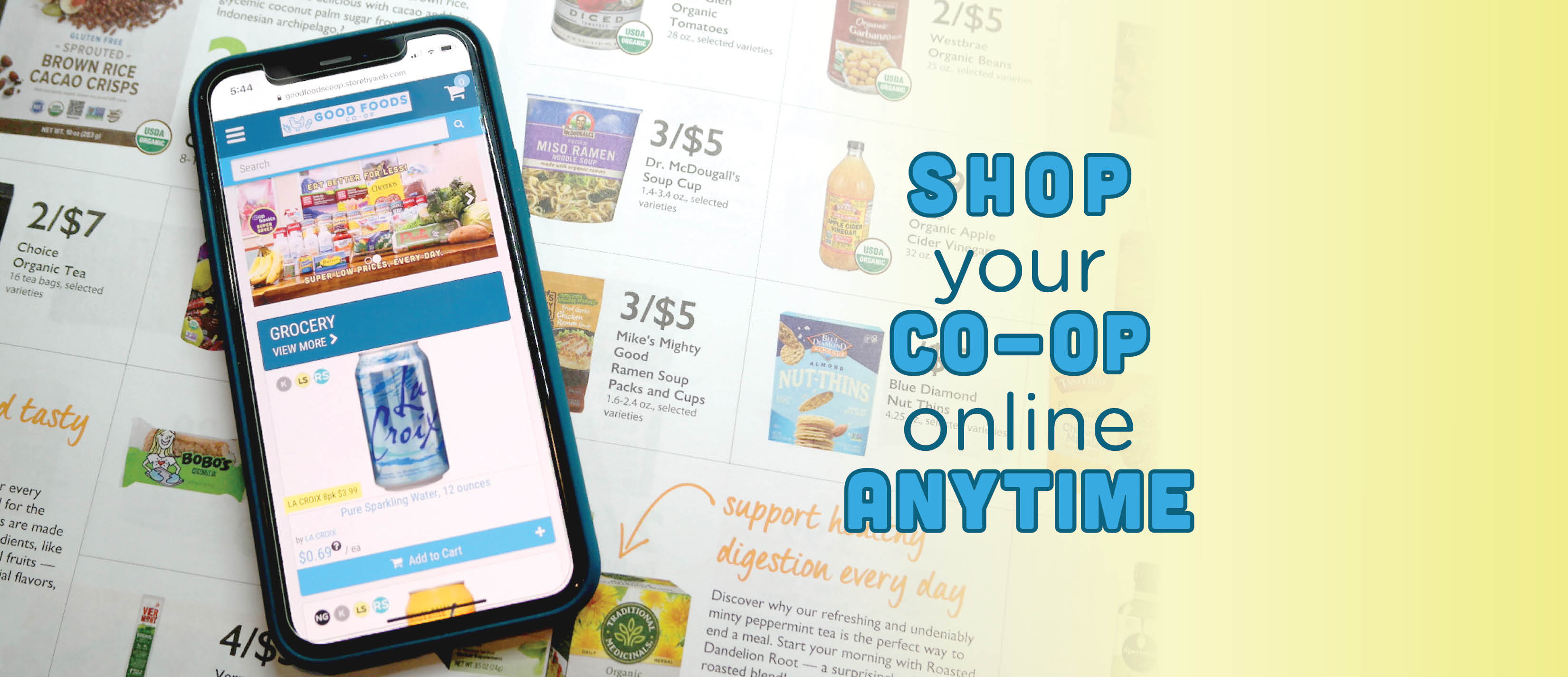This post was written by Co-op champion, cat advocate and zero waste hero, Malinda O’Quinn.

Municipal solid waste is the third largest human-related source of methane emissions in the United States. In 2000, the EPA reported that each person generates 4.74 pounds of solid waste per day. By living a little more intentionally, we can lessen the strain that we are placing on our environment. My husband and I decided several years ago to live as zero waste as possible and it has been an eye-opening, yet rewarding, switch for us to make.

The concept of becoming a zero waste hero can scare a lot of people away from trying, but I prefer to think of it as a daily exercise in mindfulness. The first step you can take in moving towards a zero-waste lifestyle is to take inventory of the disposable products you use daily. Notice what you throw into the trash from morning until night.
If you’re like me, you’ll be shocked by the number of single-use items that end up in your trash—from the sandwich bags to the disposable containers lurking in bathroom cabinets to the spray bottles of cleaning solutions lined up in your laundry room to the disposable razors and plastic flossers languishing by the bathroom sink.
It’s very tempting to get rid of all those things at once and replace them with reusable items, but STOP RIGHT THERE! The best option in any scenario is to use up what you have and to utilize items you already have around the house before purchasing reusable, eco-friendly alternatives.

When you are ready to move forward, you can use cloth napkins instead of paper, handkerchiefs instead of tissues and old t-shirts instead of paper towels. Swap your plastic zip-top bags for reusable silicone bags that you can wash in the dishwasher and use for years. Replace your dryer sheets with wool balls that soften clothes and reduce static, as well as cut drying time. Swap your plastic bottles of body care products for ones without packaging, like bar soaps, or you can make your own. Use empty glass jars to hold leftovers or pantry items instead of flimsy plastic. Always try to utilize items you already own or buy secondhand when possible to keep more items out of the waste stream as well as to save you money!
Venturing outside your abode can make things a little more difficult, but if you never leave the house without your reusable water bottle, a stainless steel straw and your own set of reusable flatware, it can be a breeze. Keeping reusable shopping bags and cloth bulk/produce bags with you wherever you go is a standard zero waste hero move too.

In 2015, the largest portion of municipal waste, 78 million tons, was containers and packaging. The obvious best option to avoid this waste is to find items that come package-free. This can be challenging at times, but Good Foods Co-op is an amazing resource for bulk grocery goods, plastic-free produce, bulk bath and body care and household cleaning supplies. They even have a zero waste shopping guide on their website. If you can’t find items without packaging, it’s best to buy items in cardboard, metal or glass. Often times they’re recyclable at home and much more sustainable than plastic packaging.
In the end, the best tactic for becoming a zero waste hero is taking a second to think about the things you buy. When I’m out shopping, I stop myself before I bring any item into my home—from clothes to food or hygiene products—and I ask myself a series of questions:
- What will happen to this item once I have used it up, it is no longer functional or I no longer desire it?
- Is this item necessary in my life?
- Can this item be donated or given to friends/family if I decide I don’t want it anymore?
- Can it’s packaging or container be easily recycled?
- Can it be reused, repurposed or utilized in some other way?

In the end, the key to being a zero waste hero is to simply try your best. Be aware of the waste you are creating and take small steps each day to lessen your burden on the planet. To make a difference, we need lots of people doing their best, living zero waste imperfectly instead of a handful of people creating no waste at all. You can make a difference with small choices!
You can learn more about reducing your waste stream with us Saturday, May 25, 2019 at Bluegrass Greensource’s Greenfest. You can check out our zero waste shopping workshop at 9:00 am along with sessions on beekeeping, mushroom growing, upcycling, composting, home energy efficiency, making green cleaners and more! Details and tickets available here.
For details on what can be recycled in Lexington, click here.
For info on where to recycle plastic bags and film, click here.
To find out how to “recycle everything with TerraCycle,” click here.
